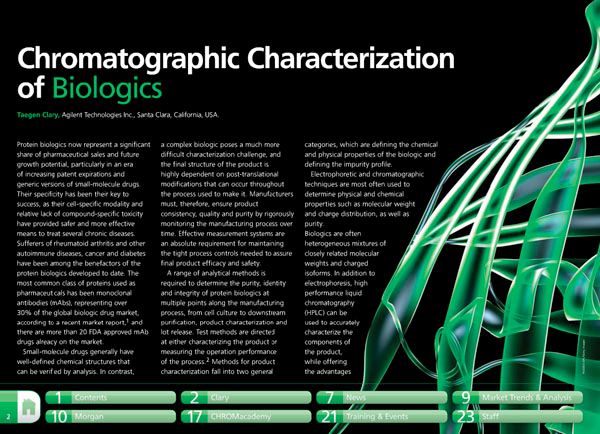Chromatographic Characterization of Biologics
Characterizing biologics through chromatographic analysis.
Protein biologics now represent a significant share of pharmaceutical sales and future growth potential, particularly in an era of increasing patent expirations and generic versions of small-molecule drugs. Their specificity has been their key to success, as their cell-specific modality and relative lack of compound-specific toxicity have provided safer and more effective means to treat several chronic diseases. Sufferers of rheumatoid arthritis and other autoimmune diseases, cancer and diabetes have been among the benefactors of the protein biologics developed to date. The most common class of proteins used as pharmaceuticals has been monoclonal antibodies (mAbs), representing over 30% of the global biologic drug market, according to a recent market report, and there are more than 20 FDA approved mAb drugs already on the market.
USP CEO Discusses Quality and Partnership in Pharma
December 11th 2024Ronald Piervincenzi, chief executive officer of the United States Pharmacoepia, focused on how collaboration and component quality can improve worldwide pharmaceutical production standards during a lecture at the Eastern Analytical Symposium (EAS) last month.
RAFA 2024: Giorgia Purcaro on Multidimensional GC for Mineral Oil Hydrocarbon Analysis
November 27th 2024Giorgia Purcaro from the University of Liège was interviewed at RAFA 2024 by LCGC International on the benefits of modern multidimensional GC methods to analyze mineral oil aromatic hydrocarbons (MOAH) and mineral oil saturated hydrocarbons (MOSH).

